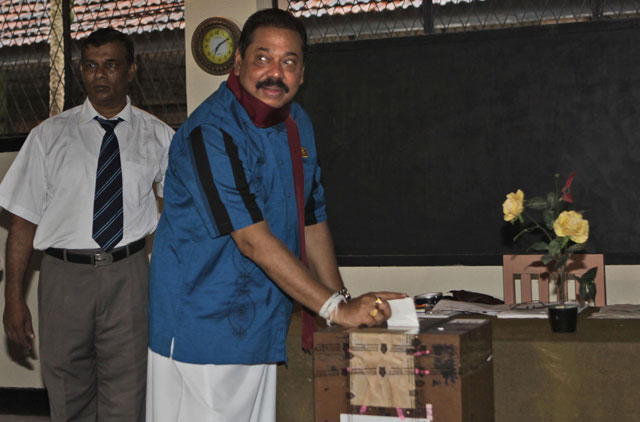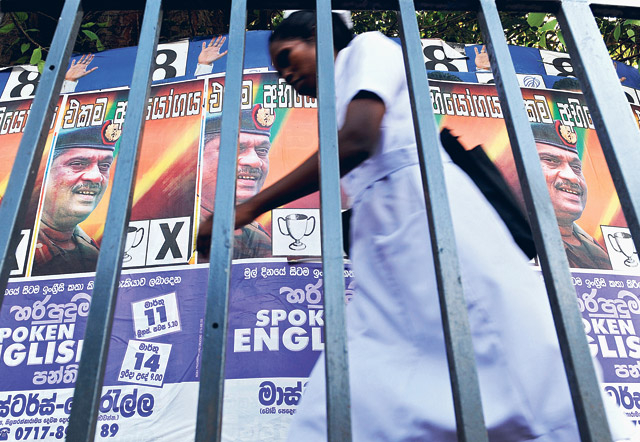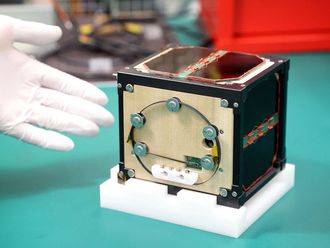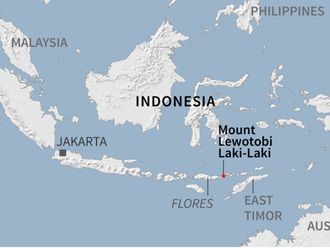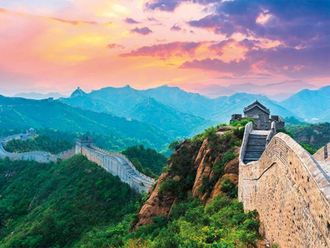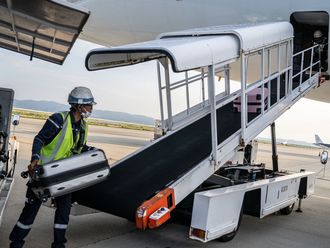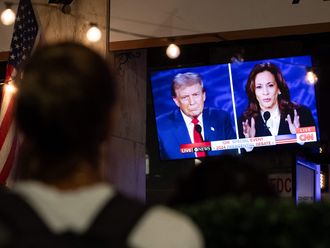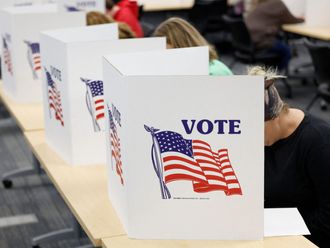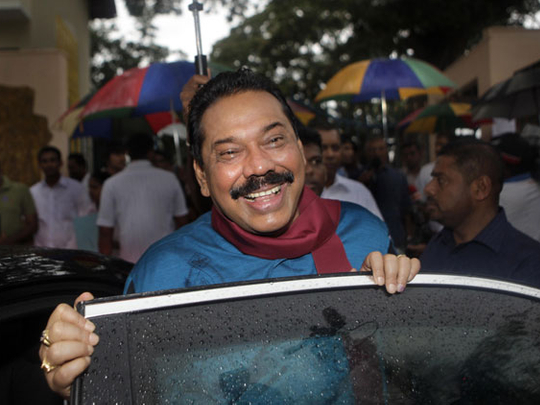
Colombo: Sri Lankans voted Thursday for a new Parliament, with President Mahinda Rajapaksa looking to consolidate his political dominance after winning re-election in January and then detaining his chief rival.
Voters lined up as polls opened throughout the island nation southeast of India, and Rajapaksa himself cast his ballot at his home village of Medamulana in southern Sri Lanka.
Rajapaksa, a hero among the Sinhalese majority for overseeing last year's government victory in the quarter-century civil war against Tamil Tiger rebels, is pushing for a two-thirds parliamentary majority that would allow his party to change the constitution.
Rajapaksa's coalition holds 128 seats in the outgoing 225-member Parliament, and it was not expected to face much competition at the polls.
The opposition is in disarray. Its defeated presidential candidate, former army chief Sarath Fonseka, who led the military in its victory over the ethnic Tamil rebels, is facing a court martial. He is accused of unlawfully planning his political career before giving up his army post and of breaching regulations in purchasing military hardware.
Despite his detention, Fonseka is running for a parliamentary seat in the capital, Colombo.
Former Prime Minister Ranil Wickremesinghe of the largest opposition party, United National Front, is facing a leadership challenge and party disunity after a series of election losses.
The opposition accuses Rajapaksa of stifling dissent, encouraging cronyism and corruption and trying to establish up a family dynasty.
Opposition politicians suspect he will try to change the constitution to continue in power past the end of his second term in 2017.
Two of his brothers and a son are running for parliament and other relatives occupy top government posts.
Jehan Perera, head of the National Peace Council activist group, said voters had two clear choices: "To strengthen the government further to fulfill its promises...or to check the government that is riding roughshod over all opposition."
Prime Minister Ratnasiri Wickramanayake asked supporter to choose the former.
"We ask you to give us a strong Parliament, and this is necessary to go for a massive development program," he said during campaigning earlier this week.
A key issue confronting the new government will be how to reconcile with the minority Tamil community following the end of the civil war.
Rajapaksa has yet to follow though on his promise to discuss a power-sharing deal with the Tamils, more than 200,000 of whom remain displaced by the war.
For Tamils the election is an opportunity to choose a new voice for their community. For three decades, the rebels were the dominant voice, killing opponents who questioned them.
The Tamil National Alliance, a rebel proxy party that had 22 seats in the outgoing Parliament, has split in three, with one faction siding with the government, another shedding its demand for an independent Tamil state and a third seeking a Sri Lankan confederation with Sinhalese and Tamil states.
In the predominantly Tamil north, few appear convinced they can change their lives through the ballot box.
"What is the benefit of voting?" asked Sivagnanam Mahendran, a 45-year-old laborer in the northern town of Manippay.
"We have voted in the past, nothing happened. All we got were destruction of life, property and displacement."


